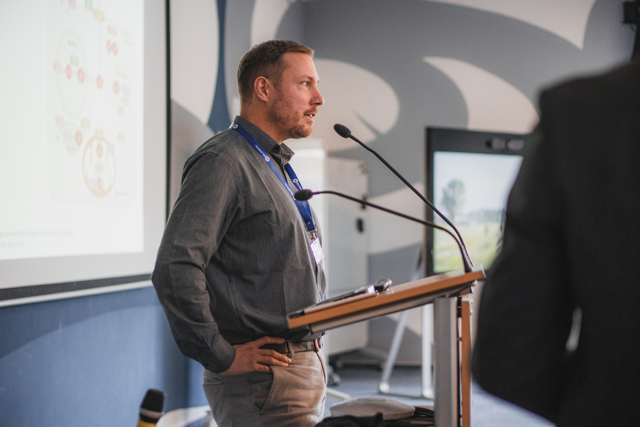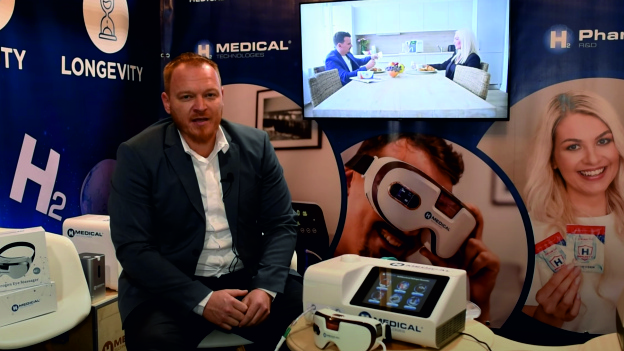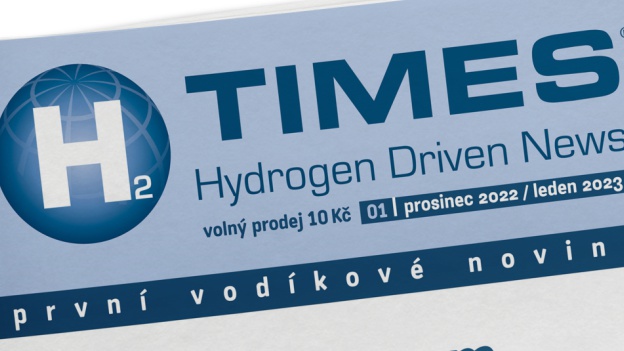Oxidative stress and antioxidant response to it. This is one of the main areas of scientific work of Associate Professor Jaroslav Zelenka. At the University of Chemical Technology in Prague, he and his students explore how these two phenomena influence the emergence of civilizational diseases. This is on credible cell models of cancer, aging and inflammatory diseases. He has also newly added the study of molecular hydrogen effects to his portfolio of interest.
Why did you decide to investigate how molecular hydrogen works in the human body?
My main scientific ambition is to contribute to finding a safe way for ordinary people to reduce their risk of developing civilisational diseases and to prolong their time spent in health. From the results published in the literature, it appears that molecular hydrogen could fulfill these ambitions. I decided to test its effects using my knowledge and established methodologies.
When did molecular hydrogen start to interest you, and why?
I started my own research into the effects of molecular hydrogen only half a year ago after I was contacted by doc. Michal Botek, who studies the effects of hydrogen on sportsperformance. This allows us to monitor the effects of the same formulation in parallel on human volunteers in Olomouc as well as isolated human cells in Prague.
What have you learned so far about the potential of molecular hydrogen for the human body?
It's hopeful, but I need to confirm the concrete results with more independent methods before I can release them into the world.

How does molecular hydrogen work in the body?
The mechanisms known so far are two: it can act directly as an antioxidant and can trigger the natural antioxidant response of our cells, which is many times more potent than any antioxidant supplied from the outside. Other mechanisms of action that would involve influencing the signaling pathways in our cells are yet to be investigated, which I intend to actively participate in.
You are engaged in, among other things, a healthy lifestyle. One of the routes you have mentioned in the past may need to be so-called hormesis based on the principle of favourable treatment of small doses of stress in our lives. How does it fit into, or could it fit into, a healthy molecular hydrogen lifestyle?
From the data in the literature and the first results from our lab, it really looks like hydrogen may be triggering the mitochondrial hormesis process. This means that its administration burdens and slightly impairs the function of mitochondria in the same way as, say, physical exertion. The body responds to this disruption by triggering adaptation processes that ultimately improve our health and overall physical condition. The change in this case comes from within our own cells and its ideal consequence is to increase the length of life spent in health.
Have you tested the effects of molecular hydrogen on yourself? If so, to what effect?
Of course, I tried them. I didn't see any immediate effect, but I didn't expect it, either, imagining that the key to achieving the health benefits of hydrogen is long-term regular administration.
What are the objectives in the field of molecular hydrogen study even before you?
I want to focus on the role of hydrogen in mitochondria, these are microscopic organelles present in all of our cells that serve as power plants and metabolism centers. At the same time, they influence the behaviour of cells by their signalling and are key components in the processes of ageing, tumour growth, resistance and condition of the body as well as immune response.
In your opinion, could molecular hydrogen be a beneficial contributor to, say, addressing civilizational diseases and tumor-busting, or trying to slow down aging?
Yes, I'm hoping for all of that, but I want to get clear and solid evidence for it, on such a fundamental subject, opinions and feelings are not enough.






























